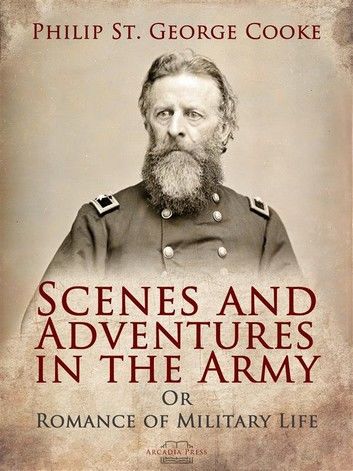Scenes and Adventures in the Army: Or, Romance of Military Life was first published in 1857.
Cooke, then a lieutenant colonel in the U.S. Army, described his extensive military service on the American frontier and included a detailed account of the various Native American tribes he encountered there. A West Point graduate and a lawyer, Cooke fought in both the Black Hawk War (1832) and the Mexican War (1846–1848).
In addition, he helped to protect settlers on the Oregon Trail, fought Apache in New Mexico Territory, helped subdue Sioux in Nebraska Territory, helped restore order in Bloody Kansas, and led a thousand-mile march from Fort Leavenworth to Salt Lake City in an expedition against the Mormons in Utah Territory.
In his memoir Cooke waxed poetic about the western landscape and its native peoples, finding both superior to the Europeans' "romance of ruins" and their love of "sonorous titles."
Philip St. George Cooke (1809–1895) was a career United States Army cavalry officer who served as a Union General in the American Civil War. He is noted for his authorship of an Army cavalry manual, and is sometimes called the "Father of the U.S. Cavalry." His service in the Civil War was significant, but was eclipsed in prominence by the contributions made by his famous son in law, J.E.B. Stuart, to the Confederate States Army.











